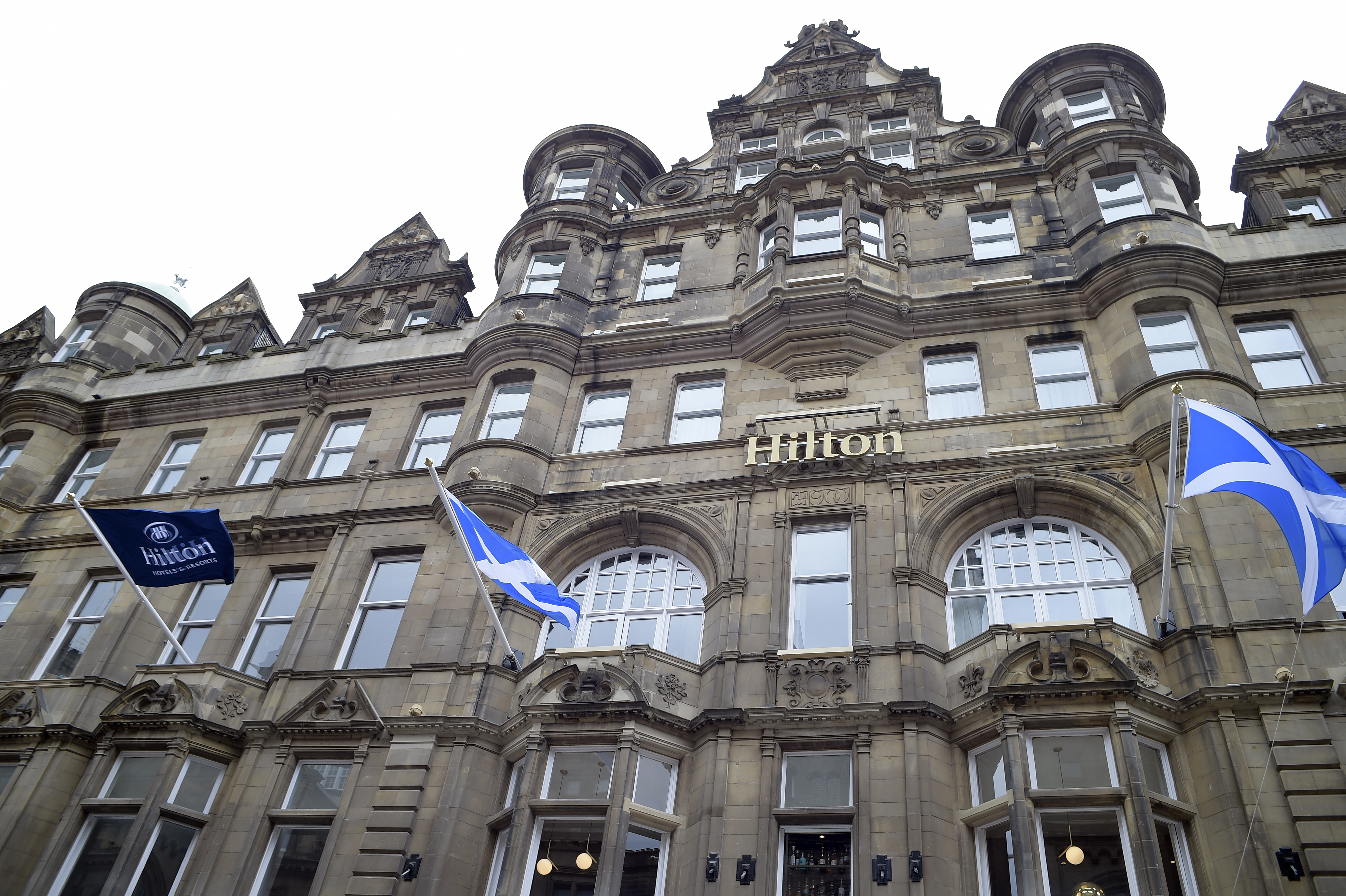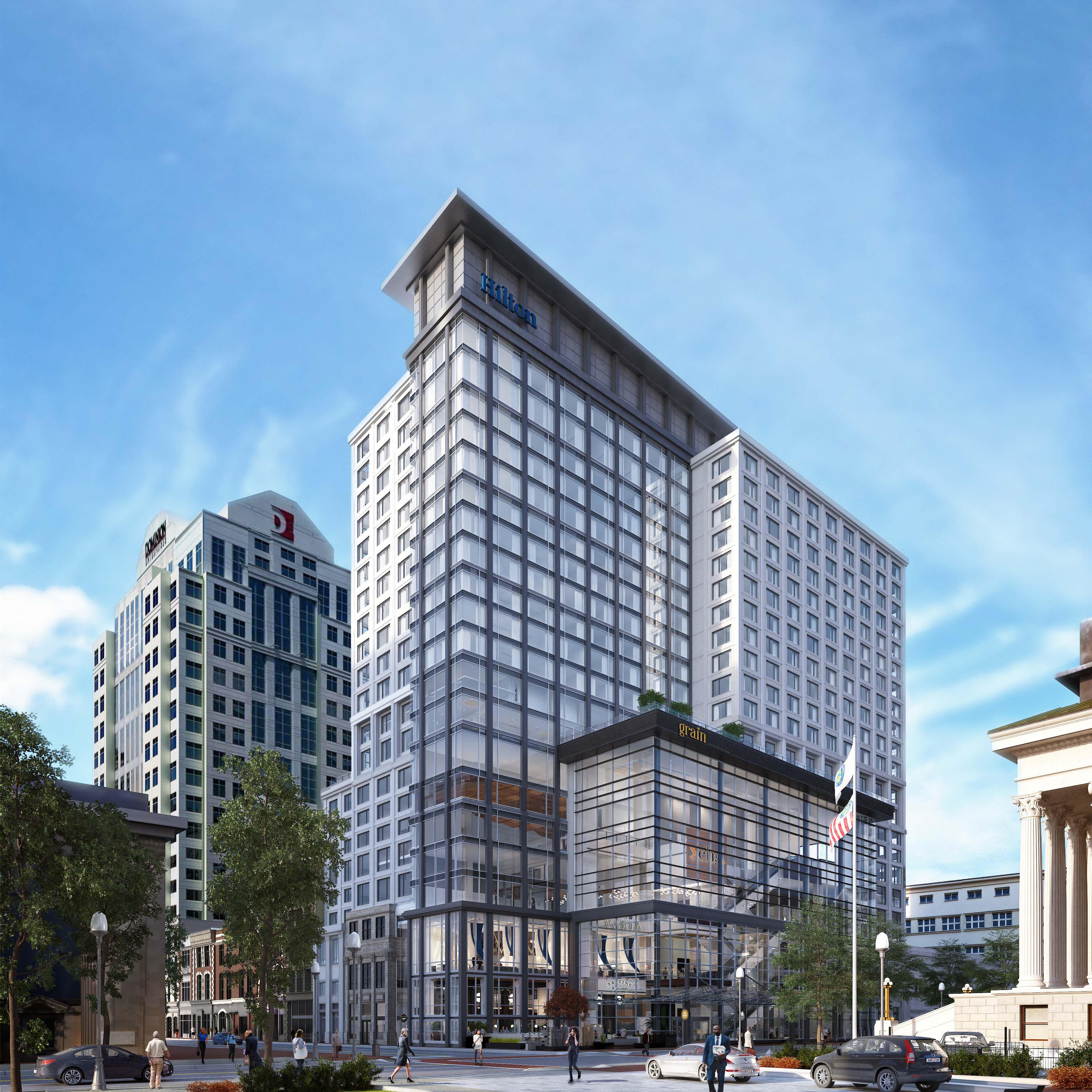Hilton's second-quarter earnings call began with a reflection on the company's weaker Q1, which company president and CEO Chris Nassetta said was the result of awkward shifts in holidays due to a strange calendar layout during 2017. While this holiday landscape is also expected to negatively impact the company's Q3 results, Q2 was a strong period for Hilton, which posted net income of $167 million and a systemwide comparable revenue-per-available-room increase of 1.8 percent compared to the same period in 2016.
"Our Q2 performance requires some context," Nassetta said during the Q&A portion of the call. "There is a lot of crazy stuff going on with shifts in the calendar this year. If you cleanse the year of holiday shifts, there are some less impactful but still important results."
Nassetta said the first half of the year may look the same as the second half, but with the layout of holidays as they are the second half of the year is more favorable to business. Specifically, the period in which July 4th and Easter landed resulted in a negative 70-basis-point net impact for the company.
"Holiday shifts are creating the appearance of big things going on, but I see things steady as she goes," Nassetta said. "We are seeing broader economic growth taking place that is positive, but not robust. We targeted the midpoint range of our estimations to remain confident, but when you really look through it all it shouldn’t be surprising with the broader economy in mind."
Related content: Hilton tightens cancellation policy at managed hotels
According to Nassetta, Hilton's RevPAR gains can be sourced to strong international hotel business, notably in the Netherlands, United Kingdom and Spain. Kevin Jacobs, CFO for Hilton, said the company's management and franchise fees grew nearly 11 percent to $513 million, well over the company's predicted 7-percent to 9-percent guidance range. Hilton is also expected to return between $1 billion and $1.1 billion to shareholders in 2017.

Big Building
Hilton added 13,400 net rooms in Q2 2017, 30 percent more than the year before, and approved 27,400 new rooms for development. Notably, the Home2 Suites brand opened its 150th hotel in Q2, and the brand is on track to open its 200th hotel by the end of the year. Tru by Hilton also opened its third hotel during the second quarter—the first Tru was Hilton's 5,000th hotel opening overall—and now one in five of the company's new hotel deals are in cities and locations where the company wasn't previously present. Hilton's pipeline of hotels under development represents more than 40 percent of the company's existing supply, and it expects to see double-digit growth in the luxury segment over the next few years.
Hilton's investment into digital check-ins has also paid off, with Nassetta claiming more than 3.5 million digital check-ins occurred during Q2 2017. This bodes well for the company's Hilton Honors program, which relies on offerings such as this to attract new users, and Hilton also entered into a new partnership with American Express to sweeten the deal. The Hilton Honors Surpass Card from American Express will be available to guests January 2018, and will reward guests with 100,000 Hilton Honors bonus points after spending $3,000 in purchases within the first three months of membership. But the draw for Hilton ownership is that the new agreement will benefit them with lower transaction and processing fees, and the total number of cardholders is expected to grow quickly.
Related content: Hilton Garden Inn details full brand refresh
"There is a huge amount of upside in getting more people into the system, as well as incremental spend," Nassetta said. "We negotiated better base margins, which will predominantly benefit the system."
Nassetta also lauded Hilton's "Operation Opportunity" program, which has hired 10,000 veterans and veteran spouses within the past four years. He said the program is expected to hire an additional 20,000 by the end of 2020. Hilton also revealed a new refresh for its Hilton Garden Inn brand, with Nassetta calling it the "next turn of the wheel" for HGI.
"We have some modest changes going on in our rooms, and many changes happening in public spaces and [food-and-beverage]," he said. "It's ultimately better for the customer, it will drive better profitability, it's more efficient to build and provdes more revenue-generation opportunities."

Down, But Not Out
Looking at the rest of the year, Nassetta said Hilton expects systemwide RevPAR to increase between 1 percent and 3 percent compared to 2016, with net income projected to land between $534 million and $559 million. When asked if RevPAR is expected to dip into the negative during Q3 following reservations about poor performance in Q1, Nassetta said the next quarter is expected to remain positive but the numbers will be low, specifically flat to 2 percent compared to Q3 2016. Net income during Q3 is expected to be between $156 million and $169 million.
During the Q&A session, Nassetta was grilled about Hilton's recent changes to its cancellation policy, which adjusted the cancellation window from 24 hours to 48 hours and, in some locations, 72 hours. When asked if the hospitality industry is still fine-tuning its policies, Nassetta said the average guest is aware of when they need to cancel a stay, but are not properly incentivized to do so.
"We have to create the right incentive structure to manage our inventory more effectively," he said. "As it is right now, it makes it very hard to manage inventory in a way that makes sense. The costs raise for everyone, and at some point those costs will be borne by consumers unless changes are made."
Nassetta was spared from any questions about Airbnb and online travel agencies until the very end of the call, when he was asked about the OTAs getting into the home-sharing business. Nassetta said he wasn't concerned because he still doesn't believe hotels and home-sharing companies are in competition. Plus, he said, more competition is better for everyone, regardless of where it comes from.
"It's a different travel occasion, so we aren't directly competing," Nassetta said. "The more competition in any space, the better off we are. In theory it will drive down pricing and distribution costs. In the long game, a lot is going to go on in two to 20 years as the competitive environment heats up."
